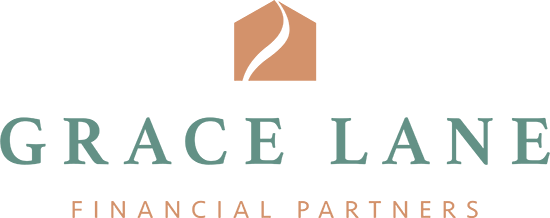The world has changed in huge ways over the last couple of decades, hasn’t it? Think smart phones, social media, driverless cars, tourists heading to space. And it’s changed hugely over the last couple of years – think Zoom calls, face masks, social distancing, restricted travel. The rate of change can leave us feeling dizzy, longing for the comfort of the past and a little fearful of what’s to come.
But with hyperbolic media coverage, it’s easy to lose sight of all the improvements that change is bringing. Think social justice movements, medical advancements, connecting with loved but geographically distant families. Think of all the little things. We take our dishwashers for granted now; our grandparents would still think they were absolutely marvellous time-savers. There’s really no question that they’re definite life improvers, right?
And so it should be with our money. There’s a lot of fear around money and how best to manage it. Will it be enough when I really need it? If I invest, will I lose it all? Will this insurance policy be an asset or a waste of money? Do your worries for the future stop you from using your money to enjoy what life has to offer you right now? Is your money improving your life, or is it a source of fear and regret?
Traditional Financial Advice May Miss the Mark
With all the fear and anxiety money – and the idea of not having enough of it – brings, we can lose sight of the power it has to vastly enrich our lives. Traditional financial advice has focused on accumulating wealth for that all-important retirement pot. Don’t get me wrong – it is important, of course it is. If you retire with anything less than half a million dollars, you’re likely in for a rough ride and that’s not something anyone can look forward to.
However, a lot of financial advice misses out on the importance of how you use your money in the present as well as down the line. As with so much in life, you can truly reap the rewards if you live in the moment. Ask yourself the question – is your money improving your life now, as well as providing security for the future?
A truly fruitful financial plan asks as many questions about your current circumstances and your current needs as it does about your future. Yes, asset management, estate planning, long term investments – all that and more must form a part of your financial plan, but they are not where it ends.
You need to examine your life in much more personal detail, to create a personalized, and therefore fulfilling financial plan. Important areas to examine are your current cash flow and your current financial obligations. Are there any changes that could be made that will both benefit your life now, and for the future?
For example, are you able to spend enough on leisure activities that improve your physical health and mental wellbeing? Could you reduce expenditure in some areas to free up money to resource areas of your life that are currently lacking or feeling somewhat inadequate.
Can you spend money investing in yourself, by training in a new skill and making yourself more valuable in the workplace? That may have a double impact by improving your sense of achievement as well as increasing your paycheck.
Invest In Yourself
The idea of your return on life is to become aware of areas of your life that you would like to develop. Then you can invest in yourself and make the very most of what your money, and your life, can offer you. You can factor all these areas of priority into your financial plan and make it a plan that always has your passions and your goals at its heart. It’s not about financial advice that can just be applied to anyone – the return on life approach keeps you at its very center.
This approach also keeps your own personal values and principles in focus too, unlike a traditional financial plan which is often too concerned with numbers and balance sheets. The truly wealthy feel like they have enough money for their needs. That can be very little, or it can be a lot. So considering what your idea of ‘enough’ is can also refocus your idea of wealth and what you truly need.
Everyone’s idea of enough is extremely personal and individual, and challenging yourself on it can have tremendous positive implications for your financial plan. You may realize that you can retire a whole lot sooner than you think, if what you need in order to do so is less than you thought. You may realize that right now your money isn’t improving your life, but that it has the power to do so if you make some minor adjustments.
Is Your Money Improving Your Life, Here and Now?
I don’t want you to leave this page with the impression that planning for the future isn’t important. It is – hugely. But you deserve to be feeling the benefits of your financial strategy right now, to enjoy time with your loved ones and to live life on your terms. A financial plan should build your financial freedom, allowing you to enjoy the best that life has to offer.
When you sit with a financial advisor who has a deep understanding of not only this approach but of how to situate your life, your loves and your goals within that strategy, you’ll see how you can significantly raise the quality of your life AND the quantity of your money.
Here at Grace Lane we look at key challenges to your finances that may arise, as well as opportunities that you may have to make more of your income, to improve your current cash flow and your investment strategy. We’ll look at big transitions that are ahead of you and how to comfortably accommodate them.
Want to know more about your return on life? Take 5-10 minutes to complete our Return on Life Index – it’s free and easy to do. And if you would like to reach out and talk about how your money can improve your life, and how a financial plan can bring you the stability you need but the enjoyment you deserve, please do reach out. We’d love to have a chat and explore all your opportunities.






